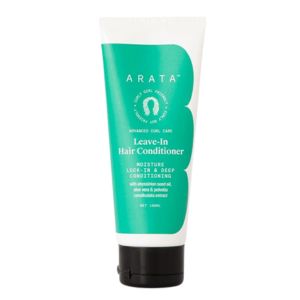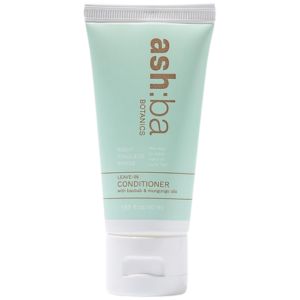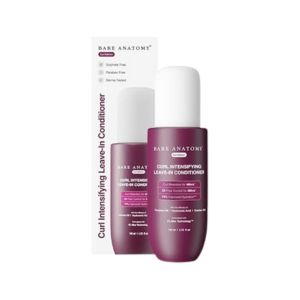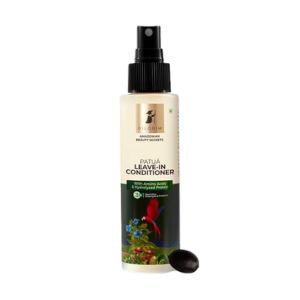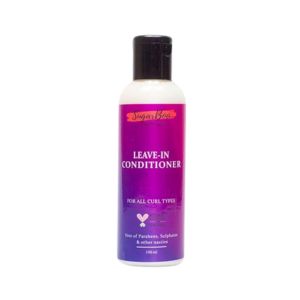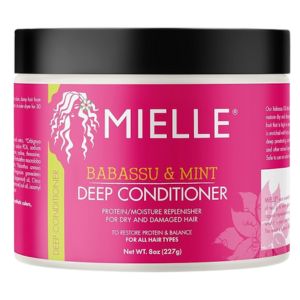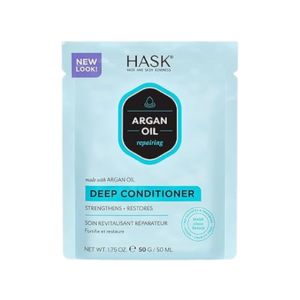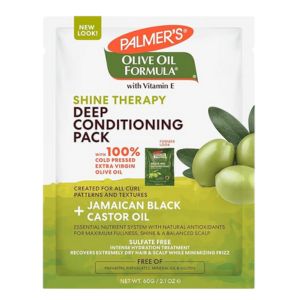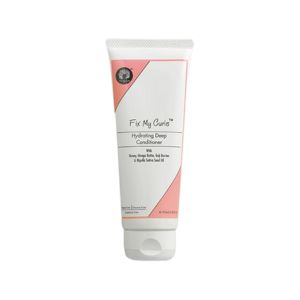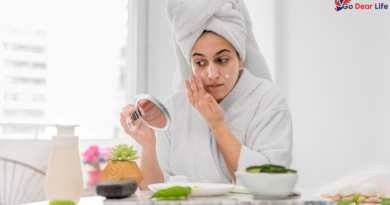How to Use Conditioner: Must know Golden Tips to Care your Hair
Last updated on February 21st, 2025
Wondering how you can fight pollution to save your hair from damage? Nothing better than shampooing your hair on an everyday basis. It is likely to remove all the dirt and dust particles that might ruin your hair, but some shampoo may dry out your scalp. As a result, your hair might look frizzy. Now if you want to tame the dryness, there should be more to your platter. To retain the natural hair oil is as important as cleansing the pollutants. You can achieve the smooth and shiny texture of your hair by a proper use of conditioner.
Well, two things to remember:
- Conditioner is only to support for regaining normal hair texture
- Conditioner is too a chemical mix, so you should use as per your requirement
Of late, we can find three distinct types of conditioner – mainstream conditioner(rinse-out), leave-in conditioner, and deep-moisture conditioner – each of them executes a similar work of hydrating and smoothing the hair.
Table of Contents
Common Mistakes People Make While Using Conditioners
- Applying Conditioner to the Scalp – Can cause buildup and make hair greasy
- Using Too Much Conditioner – Weighs down hair and makes it look flat.
- Not Rinsing Properly – Leaves residue, making hair look dull and lifeless.
- Skipping Conditioner for Oily Hair – Even oily hair needs hydration, just use a lightweight formula.
- Using the Wrong Conditioner for Your Hair Type – A heavy conditioner on fine hair or a light one on dry hair won’t work well.
- Applying Conditioner on Dripping Wet Hair – Excess water dilutes the product, reducing effectiveness.
- Not Leaving Conditioner on Long Enough – Needs at least 2-5 minutes to work.
- Leaving Conditioner on for Too Long – Can lead to buildup and greasiness.
- Not Using Conditioner After Shampooing – Shampoo strips moisture; skipping conditioner leads to dryness.
- Using Conditioner Every Day Without Shampooing – Can cause product buildup and scalp issues.
Choosing the Right Conditioner for Your Hair Type
| Hair Type | Best Suitable Conditioner |
| Oily Hair | Lightweight, silicone-free (Rinse-Out) |
| Dry Hair | Hydrating and deep moisturizing (Deep) |
| Curly Hair | Curl-enhancing (Rinse-Out) + Moisturizing (Leave-In) |
| Color-Treated/Chemically Treated | Color-safe, protein-infused (Deep) + Protective (Leave-In) |
Expert Tips:

Dr. Jushya Sarin (M.B.B.S., M.D. (Dermatology, Venereology & Leprosy))
Shampooing can strip your hair and scalp of moisture, even though the scalp has natural oil glands for nourishment. Using a conditioner helps restore lost moisture, while a hair mask or oil provides extra hydration for very dry hair.
Types of Conditioners & How to Use Conditioner (Step-by-Step Guide)
Rinse-out conditioner
A mainstream or traditional type of conditioner is most likely used each time you take a shower, only after you completely wash your shampoo. Now remember, your scalp should be well rinsed and make sure there is no stickiness in your hair. Otherwise the conditioner would not work as desired.
The purpose of this sort of conditioner is to mend the damage that is caused by various types of chemicals, normal splitting that your hair faces on an everyday basis. You must go with a type of conditioner which will suit your particular hair type. You need not worry because in today’s market, there is always a conditioner in terms of solution irrespective of curly and frizzy hair, dry and damaged hair, colored hair etc.
STEP 1: Washing hair is a must
Okay ladies, you have to take baby steps to achieve the hair you wish to have. Conditioning only works when your hair is perfectly shampooed and washed off. Remember when you take hair care, the scalp is your most important part to look after. So, scrub your hair gently and wash it in a manner so that it is perfectly dust and chemicals free. So be aware that you do not tug at your wet hair. This can stimulate more breakage, especially if you have thin strands.
STEP 2: Rinse out your shampoo
Lukewarm water is normally a wise choice for rinsing your shampoo. So, wash out with that. Warm water is a lot less likely to put a damaging effect on your hair than hot water is. As a result, your scalp will also feel a soothing impact. If your hair feels whiny, that means your hair is perfectly rinsed.
STEP 3: Wring out your hair
Now always remember that there are certain rules of using a conditioner. After you wash off your hair, do not put the conditioner immediately. It will melt off right away because wet hair is not capable of retaining its creamy texture. So, a very important tip, after you rinse your hair try to wring it out a little until it becomes moist from wet. Then, if you apply the conditioner it would be more absorbent and give out an effective result.
STEP 4: Apply your conditioner
The amount of conditioner depends on how long your hair is.
So, if you have shoulder length hair, pour two-three drops of conditioner and gently apply it on the strands.
For mid length and long hair, this would be a far too laborious job. But one thing to be kept in mind, that dryness mostly shelters at the bottom of the hair and causes breakage there. So, while applying conditioner the main focus should be moisturizing the bottom of the hair to repair split-ends.
For very long hair, it is a little difficult to uniformly apply the conditioner everywhere. In that case the best option is to take help from someone else since the conditioner being uniformly spread is a must.
STEP 5: Let the conditioner set
This is the most vital step of conditioning your hair. So, pay attention, ladies! Any kind of conditioner brings out its complete impact when it is left out at least for some time on your hair. This span of time varies with different experts’ opinions. Some say, 10-15 minutes or some emphasize at least 20 minutes. But it is up to us. It does not really matter 5 minutes back and forth. What matters is that you give time so that your hair can soak most of the conditioner before you rinse it off. This way the hair regains its vitality and thus looks fresh and shiny.
STEP 6: Rinse out the conditioner
Rinsing out the conditioner is as essential as that of the shampoo. You have to perfectly wash it off, so that your hair does not feel slippery or slimy.
Remember again, conditioner is ultimately a chemical mix. So, it’s over usage might backfire and cause even more damage. Conditioning should reset our hair to its healthy texture. So, you should be really careful regarding its amount of usage. And obviously, when you see that your hair is squeaky enough, you can be assured that the conditioner is perfectly washed off.
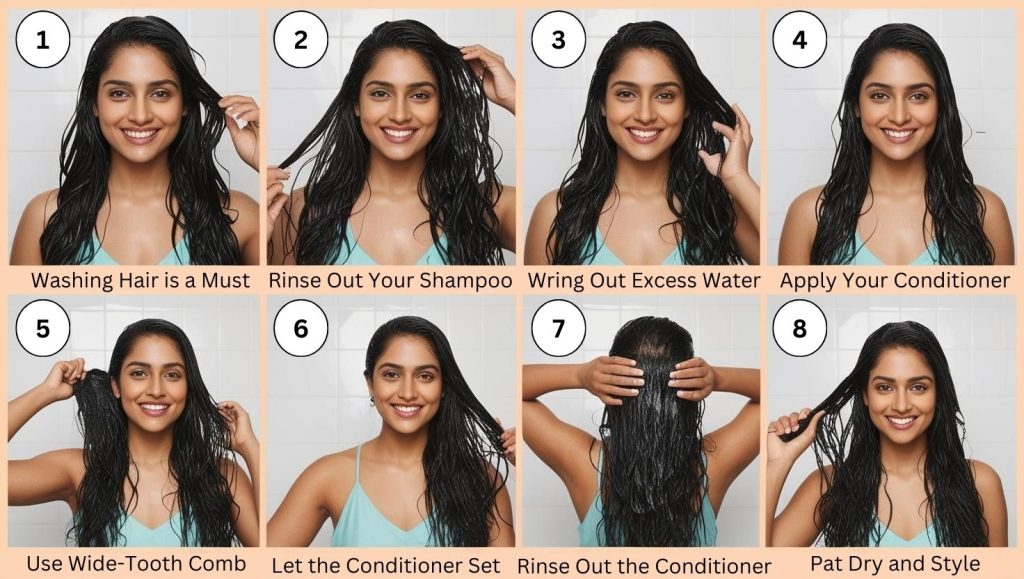
Leave-in conditioner
Just like regular or traditional conditioners, leave-in conditioners vary with the diverse requirements of the customers according to their hair types. But what is significant is the basic difference in their usage.
Generally, leave-in conditioner comes in two basic forms- creamy and spray-on. The initial sort is plausible for nourishing mostly thick, dense and curly hair and helps to weigh down the strands a little bit. The curls are likely to catch more dryness, so this is another reason why the creamy texture of the conditioner is the best choice. The latter mostly is more functionable on thin and fine strands. Thus, gives it a fresh look.
STEP 1: Shampoo and condition your hair
Well, now let’s talk about the usage of this kind of conditioner.
I am sure the name itself explains a lot. Yes, you are right, leave-in conditioners do not need to be washed off. But it’s full fledged effect will reflect only when you apply damp hair. Mind it ‘damp’ hair, not drenched hair. The process is similar- soak off the extra water from your hair and lay on the conditioner when it becomes moist or damp. But do not rub it vehemently, apply it gently inside out.
STEP 2: Place a small amount of serum in the palm of your hand
Again, do not use a handful of conditioners be it traditional and leave-in. It will ultimately bring more damage and your scalp cells might decay as well. Most experts suggest a coin-sized amount of mid length hair. But a little mismatch is allowed. You can apply more or less as per your needs. But begin with a lesser amount than what you thought you would use.
STEP 3: Rub the product into your hair
The most important thing to remember is that unlike traditional conditioners, leave-in conditioners must not be applied to your scalp. This type of conditioner is mostly a treatment for removing dryness from the lower ends of your strands. You should spread or smear it on the most damaged areas of your hair. Otherwise, unnecessarily the healthier parts will get affected.
STEP 4: Comb through your hair
When you take a shower generally what happens, your hair tends to tangle, creating a higher chance of tearing of the strands. So, after you make your hair moist, try to comb your strands so that they loosen up a little. Use shower comb in this process. And when you are done apply the conditioner, comb it again. It would help the product spread out widely and cover most of the area of your hair. So, less parts will be left dry.
Deep conditioner
Now let’s get familiar with the idea of deep conditioners. Its sole purpose is to repair split-ends and damaged hair. Some deep conditioner gives you a silky and shiny look to your hair. There are various quality brands available which provide deep conditioners. But there is not as much variety as the other two kinds.
STEP 1: Wet your hair
The same process is followed here as well. You have to clean your hair first as perfectly as you can. Your scalp should be completely pollutants free. Well, after taking a good shower, absorb the extra water with a towel and put the conditioner after that.
STEP 2: Apply the deep conditioner
Take a scoop of the conditioner on your palm. Apply it uniformly on your strands. The coating must be thick throughout your hair length. And good news! If you even spread the product to your scalp, it does not have any negative impact. Remember, you must comb your hair before applying the product so that each of the strands get nourished.
STEP 3: Wait for it to set
If you have a shower cap, nothing like it. Put on the shower cap after you smear the conditioner well uniformed. It will help your hair to absorb most of the product so that it can heal in a more effective manner. Generally, it takes 20-30 minutes for the conditioner to do wonders.
STEP 4: Wash out the deep conditioner
After approximately half an hour, you should remove the shower cap. Turn your water on and put on the heater for 2-3 minutes. The water should be warm by then. Again, keep in mind that the water should not be hot as a flame.
Next comes the process of cleaning off. Allot 3-4 minutes for rinsing off the deep conditioner. You have to be extra cautious this time and make sure that not a single drop of the product is left on your hair. Since this is a heavy conditioner and a chemical mix, retaining it on the hair might cause damage as well. You should keep washing unless and until your hair removes all the stickiness from within. Then comb your hair and again rinse it with plain cold water.
How Often Should You Use Conditioner?
| Hair Type | Frequency of Use |
| Oily Hair | 2-3 times a week (light application) |
| Dry Hair | Every wash (deep conditioning once a week) |
| Curly Hair | Every wash (leave-in daily if needed) |
| Color-Treated/Chemically Treated | Every wash (deep conditioning once a week) |
Expert Tips:

Dr Arika Bansal (Leading Hair Transplant Surgeon)
Conditioner should be used 1-3 times a week based on hair type and dryness. After shampooing, apply it to damp hair (avoiding the roots), leave it for 3-4 minutes, and then rinse. Applying conditioner to the roots can make them greasy.
Popular Indian Conditioner Brands
| Product Names | Purchase Link |
| L'Oreal Paris Conditioner, For Damaged and Weak Hair | NA |
| Dove Hair Fall Rescue Hair Conditioner | NA |
| TRESemme Keratin Smooth, Conditioner | NA |
| Sunsilk Nourishing Soft & Smooth Conditioner | NA |
| Pantene Advanced Hair Fall Solution Anti Hair Fall Conditioner | NA |
| Himalaya Anti-Hair Fall Conditioner | NA |
| Mamaearth Onion Conditioner | Click here |
| Matrix Opti.Care Professional Conditioner | NA |
| Tri-Flow Triflow Hair Color Treated Almond Conditioner | Click here |
| Garnier Hair Care Fructis Color Shield Conditioner | Click here |
| Patanjali Hair Conditioner Damage Control | NA |
Organic or Herbal Conditioners
| Product Names | Purchase Link |
| Herbal Essences Argan Oil of Morocco CONDITIONER | Click here |
| Aravi Organic Rosemary Hair Growth Conditioner | Click here |
| Kesh King Organic Onion Conditioner with Curry Leaves | Click here |
| Khadi Natural Amla & Bhringraj Hair Conditioner | NA |
| Earth Rhythm Organic Hair Conditioner | Click here |
| Karmic Beauty Hair Conditioner | 100% Organic | Click here |
| Coco Soul Hair + Scalp Conditioner with Coconut & Ayurveda | NA |
| Advik Ayurveda Rosemary Hair Conditioner | Click here |
| OG BEAUTY Ayurveda Shine Hair Conditioner | Click here |
| Shesha Ayurveda Bhringa Thali Hair Conditioner | Click here |
Common Hair Problems in India & How Conditioner Helps
1. Frizz Control in Humid Weather
Problem: High humidity causes hair to absorb moisture from the air, making it frizzy and unmanageable.
How Conditioner Helps:
- Use a smoothing or anti-frizz conditioner with ingredients like keratin, argan oil, or silicone to create a protective barrier.
- Leave-in conditioners provide extra hydration and help keep frizz under control.
- Deep conditioning once a week locks in moisture, reducing humidity-induced frizz
2. Dryness Due to Pollution
Problem: Air pollution strips natural moisture from the hair, leading to dryness, rough texture, and dullness.
How Conditioner Helps:
- Use a hydrating or deep moisturizing conditioner with shea butter, coconut oil, or glycerin.
- Leave-in conditioners add an extra layer of protection against environmental pollutants.
- Rinse-out conditioners help replenish lost moisture and prevent further dryness.
3. Hair Fall Due to Hard Water
Problem: Hard water contains minerals like calcium and magnesium that build up on the scalp, weakening hair and causing breakage.
How Conditioner Helps:
- Use a clarifying conditioner with chelating agents to remove mineral buildup.
- Protein-infused conditioners strengthen hair shafts and prevent breakage.
- Deep conditioning treatments once a week restore softness and combat dryness caused by hard water.
4. Dandruff & Scalp Buildup
Problem: Excess oil, product buildup, and fungal infections cause dandruff, making the scalp flaky and itchy.
How Conditioner Helps:
- Use a lightweight, scalp-friendly conditioner with tea tree oil, aloe vera, or salicylic acid.
- Avoid heavy, silicone-based conditioners that may clog pores.
- Clarifying conditioners once a week help remove buildup and keep the scalp healthy.
DIY Natural Conditioners for Indian Hair
If you prefer chemical-free hair care, natural conditioners are an excellent way to nourish and strengthen your hair. Here are three DIY natural conditioners using common Indian ingredients that help with hydration, frizz control, and hair growth.
1. Aloe Vera & Coconut Milk Conditioner
- Best For: Dry, frizzy, or heat-damaged hair
Ingredients:
- 2 tbsp fresh aloe vera gel
- ½ cup coconut milk
- 1 tsp olive oil (optional for extra moisture)
How to Use:
- Blend all the ingredients into a smooth mixture.
- Apply it evenly to damp hair, focusing on the lengths.
- Leave it on for 20-30 minutes.
- Rinse with lukewarm water and follow with a mild shampoo.
- Benefits:
- Deeply hydrates hair and adds natural shine
- Reduces frizz and repairs damage
- Aloe vera soothes the scalp and promotes hair growth
2. Yogurt & Honey Deep Conditioner
- Best For: Rough, dull, or chemically treated hair
Ingredients:
- ½ cup plain yogurt
- 1 tbsp honey
- 1 tsp coconut oil
How to Use:
- Mix all the ingredients into a creamy paste.
- Apply generously from roots to tips.
- Leave it on for 30-40 minutes.
- Rinse off with cool water and a mild shampoo.
- Benefits:
- Yogurt contains lactic acid, which softens hair and removes buildup
- Honey locks in moisture and adds shine
- Reduces dryness and makes hair more manageable
3. Hibiscus & Curd Conditioner
- Best For: Weak, brittle, or thinning hair
Ingredients:
- 4-5 hibiscus flowers (or 2 tbsp hibiscus powder)
- ½ cup curd (yogurt)
- 1 tsp fenugreek powder (optional for extra strength)
How to Use:
- Blend hibiscus flowers into a fine paste.
- Mix with curd and fenugreek powder to form a thick conditioner.
- Apply to the scalp and hair, massaging gently.
- Leave it on for 30 minutes.
- Wash off with cold water and a sulfate-free shampoo.
- Benefits:
- Hibiscus is rich in amino acids, which strengthen hair roots
- Curd nourishes the scalp and reduces dandruff
- Prevents premature graying and promotes thicker hair
Conclusion
Using the right conditioner in the right way can make a huge difference in your hair’s health, texture, and appearance. Whether you have oily, dry, curly, or color-treated hair, choosing the right conditioner and applying it correctly is key to maintaining smooth, nourished, and frizz-free locks. Additionally, being mindful of common mistakes and using natural conditioners when needed can further enhance your hair care routine.
By following these golden tips, you can achieve healthier, stronger, and more manageable hair, even in India’s challenging climate conditions. So, pick the right conditioner, use it wisely, and let your hair shine with confidence!
Disclaimer
The information provided in this blog is for educational purposes only. Individual hair needs may vary, and it’s always advisable to do a patch test before trying any new product or DIY conditioner. If you experience scalp irritation, hair fall, or any allergic reactions, consult a dermatologist or hair care professional.
About the Author
A voracious reader and enthusiastic writer, I have a knack for concocting a plethora of creative write-ups. I'm a trend-savvy researcher, always on the hunt for inspiration to create unique and captivating content. I fancy myself a genre chameleon, flitting from intellectually stimulating pieces to captivating works of fiction. Whenever not weaving my thoughts into words, I indulge in my love of painting, cooking, dancing and some good old Netflix binge!


